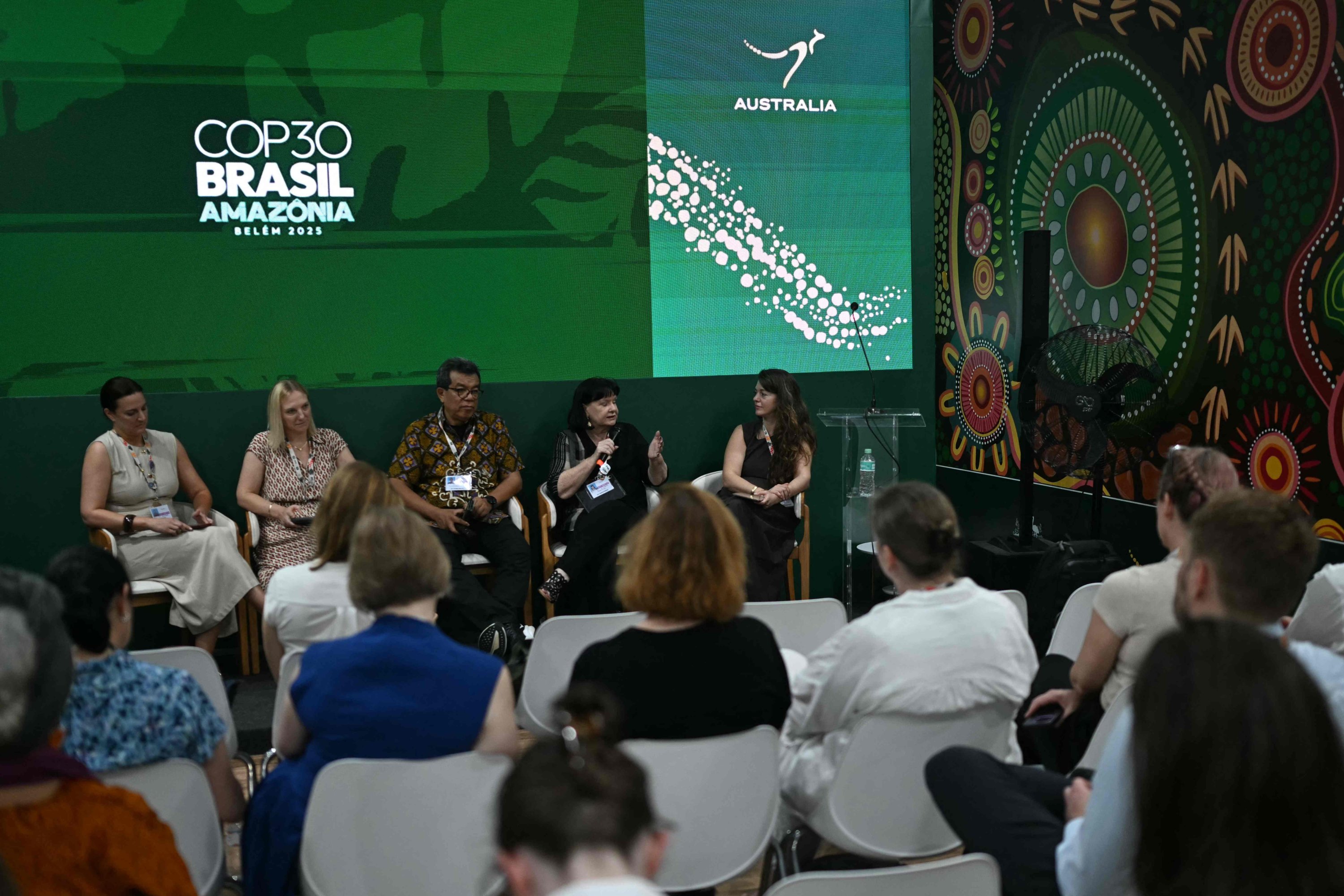Diplomats at the COP30 climate summit in Brazil are caught between two choices: the Australians pouring flat whites, or the Turkish offering strong brews next door.
Their proximity is convenient for a caffeine fix but awkwardly close for Türkiye and Australia, which are locked in a stalemate over who should host next year’s U.N. climate talks.
Both countries are bidding for COP31 and neither is backing down, creating an unfortunate distraction at the ongoing negotiations where Brazil is desperate to show that climate diplomacy still works.
Ankara and Canberra are under pressure to break the impasse and avoid a scene in Belem, a city in the Amazon Rainforest steamy enough without any added drama.
The host must be chosen by consensus so unless Türkiye or Australia withdraws its bid, or they somehow agree to share the duty, both countries will miss out.
Such an occurrence would be unprecedented and see COP31 hosting rights default to Germany, which does not want the job.
Against this backdrop, some observers detect a calculated move in positioning the Turkish and Australian pavilions as close as possible within the cavernous COP30 venue.
“One hundred percent deliberate. The Brazil presidency is like, sort this out,” Kathryn McCallum, an activist from Climate Action Network Australia, told Agence France-Presse (AFP) in Belem.
“They don’t want it dragging down this really critical conversation.”

Tough talk
The close confines did not deter roughly two dozen Australian and Pacific supporters from promoting their COP31 bid on Thursday in full view of the Turkish pavilion and its crescent moon flag.
On a recent evening, AFP saw an excited crowd swarm the Australian pavilion when Queen Mary of Denmark, a native of Tasmania, paid a royal visit.
Apart from the lure of free coffee, Türkiye’s on-site calligrapher has proved a big hit, with visitors to its pavilion leaving with customized illustrations and woven tote bags.
But away from the COP30 pavilions, soft diplomacy is giving way to hard talk.
Brazil has appointed an envoy to nudge Australia and Türkiye toward agreement before the summit wraps up on Nov. 21, but neither country is blinking.
On Thursday, Prime Minister Anthony Albanese told reporters in Sydney that President Recep Tayyip Erdoğan was “maintaining his position in response to Australia maintaining our position.”
When asked by AFP if confident of a resolution in Belem, Turkish climate diplomat Ayşin Turpancı said: “We are still committed to host COP31.”
Australia had engaged with Türkiye “at the highest levels” and wanted to see the matter resolved, the country’s assistant climate minister, Josh Wilson, told AFP.
“But it’s clear from my engagement in recent days that our bid has very broad and strong international support,” he said, adding the case for Australia to co-host with the Pacific was “compelling.”
But Türkiye, too, is confident it has the numbers.
“The chances for Türkiye and Australia are 50-50,” a source from the Turkish delegation told AFP.
Down to the wire
Past summits have entertained competing bids, but “there’s never been one that has gone to the wire like this,” Alden Meyer, a COP veteran from climate think tank E3G, told AFP.
Under the COP rules, hosting duties rotate through five blocs of countries.
In 2026, that falls to the Western European and other states, two dozen countries mostly in Europe but also Türkiye, Australia, Canada and a few others.
If no consensus is reached, the summit reverts to Bonn, a city in western Germany that hosts the U.N.’s climate secretariat.
“I can imagine, I know, that Germany is not looking to host this COP,” Jennifer Morgan, a former climate envoy to Germany, told AFP in Belem.
As both countries dig their heels in, Ethiopia is already being celebrated for being endorsed for COP32 in 2027, underscoring how little time next year’s hosts will have to prepare.
Among those also awaiting an outcome in Belem are Pacific nations, which have long campaigned to bring the world’s attention to the climate peril at their doorstep.
“The sooner we know, the better, and hopefully in Australia,” Vishal Prasad, the Fijian director of Pacific Islands Students Fighting Climate Change, told AFP.
Türkiye has previously argued its Mediterranean location would help reduce emissions from flights bringing delegates to the conference, and has pointed out its smaller oil and gas industry compared to Australia.
Türkiye has felt the effects of climate change, with repeated extreme weather events, including heat waves. Major Turkish lakes, such as Lake Van in the east and Lake Tuz in Central Anatolia, are drying up.
In October 2021, Türkiye became the last Organisation for Economic Co-operation and Development (OECD) and G-20 country to sign the Paris Agreement on limiting the effects of climate change.
According to official statistics, 36.2% of Türkiye’s electricity was generated from coal in 2023, and 21% from natural gas. Hydropower contributed 19.3%, wind 10%, and solar power 7%.
The government aims for solar power to generate half of the country’s electricity by 2035.

